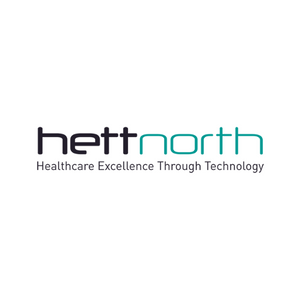A recently published report from the NHS Race and Health Observatory has called for the NHS to reform how it collects and uses data provided by users of digital apps to help tackle health inequalities surrounding ethnicity.
Overview of the Digital apps and reducing ethnic inequalities report
The Digital apps and reducing ethnic inequalities report aimed to understand how digital applications can reduce ethnic inequality in health outcomes. The report reviewed lessons learnt from two patient facing apps: NHS Blood and Transplant’s Give Blood App (NHSBT) and the NHS App. The NHS app hit 30 million sign ups in December, so ensuring it works towards closing inequality gaps in health is vital.
Across various streams of research, the researchers were able to identify two key areas where there are visible ethnic health inequalities related to the remits of the apps:
- Blood donation – Fewer than 5% of blood donors from Black, Asian and minority ethnic groups donated blood in a year.
- Vaccinations – The ethnic groups with the lowest proportion of people who had received three COVID-19 vaccinations were Black Caribbean, Pakistani and Black African.
In the report, the researchers outlined how the current setup and remit of the apps have widened the ethnic health inequality gap in terms of blood donation and vaccinations. For example, the current remit of the NHSBT app makes it difficult for the team to drive improvement in the overall engagement of black and minority ethnic groups in blood giving. This is due to the current setup of the app being primarily focused on improving the booking experience for frequent donors which primarily consists of white donors.
Despite this, the NHSBT app has a clear goal of increasing and retaining non-white blood donors. This goal enabled NHSBT to prioritise its data collection from Black, Asian and minority ethnic group donors throughout the patient journey. However, the NHSBT has struggled to process the data in a timely manner due to processing capacity.
There has also been a series of challenges when tackling ethnic health inequalities with the NHS App. User data is currently being collected by primary care teams and stored locally within GP systems. Whilst this approach has benefits, it means the NHS App team don’t have access to live data to create a clear understanding of App usage by ethnicity. This means the App design team are unable to see the impact of their work in real time in order to improve on it.
What could be done to reduce ethnic health inequalities?
As a result of the findings from the report, the NHS Race and Observatory are calling for reform in how the NHS and NHSBT collect and use data to guide policy decisions. The report outlined a series of recommendations:
-
The design and research effort for healthcare apps should be geared towards working with Black and minority ethnic communities to deliver more equitable services.
-
Digital teams should work closely with local NHS GP practices and commissioning groups, frontline staff, and community partners to identify new ways to serve the unique and unmet needs of minority ethnic communities.
-
Have linked data cutting across demographics, clinical outcomes and digital behaviours to actively shape and deliver impactful services to reduce health inequality.
-
Engagement with the public and with members of black, Asian and ethnic minority communities, to co-design data policies based on community needs.
-
Ensuring that delivery and leadership teams are empowered and have the right conditions in place to work towards collectively reducing ethnic health inequalities.
Find out more about digital inclusion to tackle health inequalities at HETT North
This year’s HETT North is the perfect opportunity to find out more about digital transformation and tackling health inequalities. The packed full agenda includes a variety of CPD-accredited sessions featuring over 100 esteemed speakers.
HETT North is taking place on 28th February 2024 in Manchester and is free-to-attend for the NHS, charities and the wider public sector.
Register today to secure your place.
%20(1).png?width=500&height=58&name=HETT%20insights%20logo%20RGB-04%20(1)%20(1).png)


